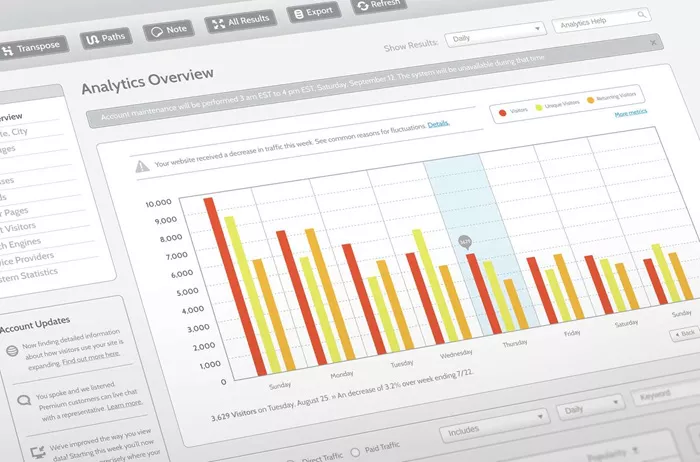Investing in the stock market requires a solid understanding of various terms and concepts that can impact your decision-making. One such term is “underperform,” a rating often assigned to stocks by analysts. This detailed guide will explore what “underperform” means in stocks, why a stock might be rated as such, and what actions you might consider if you encounter this rating.
What Does “Underperform” Mean
In the context of stocks and investments, the term “underperform” is used to describe a stock that is expected to deliver returns lower than those of a benchmark index or the overall market. This benchmark could be a broad market index like the S&P 500, or it could be a more specific sector index.
Relative Performance: The key aspect of “underperform” is its relative nature. A stock is said to underperform if its performance (in terms of price appreciation, dividends, or overall returns) is less favorable compared to other stocks or indices over a given period.
Analyst Ratings: Financial analysts frequently use this term as part of their stock rating systems. A stock that receives an “underperform” rating is expected to lag behind other stocks in terms of returns.
How Analysts Use “Underperform” Ratings
Stock analysts provide ratings to help investors decide whether to buy, hold, or sell a particular stock. The typical range of ratings includes:
Buy/Strong Buy: Indicates the stock is expected to outperform the market or its sector.
Hold: Suggests that the stock will perform similarly to the market or its sector.
Sell: Recommends selling the stock as it is expected to decline in value.
Underperform: A middle-ground rating, signaling that while the stock might still increase in value, its returns are likely to be lower than those of its peers or the market.
Understanding the Context and Implications
The “underperform” rating doesn’t necessarily mean the stock is a bad investment or that it will lose value. Instead, it implies that there are potentially better opportunities elsewhere in the market. For example, if a stock is expected to rise by 3%, but the market or its sector is expected to rise by 7%, the stock is underperforming even though it’s still gaining value.
Why a Stock Might Receive an Underperform Rating
There are various reasons why analysts might assign an “underperform” rating to a stock:
1. Financial Performance
A company’s earnings reports might show slower revenue growth, shrinking profit margins, or higher expenses compared to its competitors. This financial underperformance could lead to lower expectations for future stock performance.
2. Market Conditions
External factors such as economic downturns, rising interest rates, or industry-specific challenges can affect a company’s stock performance. Even if the company is well-managed, broader market conditions might lead to an “underperform” rating.
3. Competitive Landscape
Increased competition within an industry can lead to a company losing market share, facing pricing pressures, or struggling to innovate, which might result in lower stock performance relative to peers.
4. Management Issues
Changes in leadership, strategic missteps, or governance problems can undermine investor confidence, causing analysts to anticipate that the stock will underperform.
5. Sector-Specific Challenges
If a particular sector is facing challenges—such as regulatory changes, technological disruptions, or shifts in consumer preferences—stocks within that sector might be rated as underperforming.
6. Valuation Concerns
Sometimes a stock might be considered overvalued relative to its earnings or growth potential. In such cases, analysts might predict that the stock will underperform as it adjusts to a more reasonable valuation.
See also: What Is Outperform in Stocks?
Examples of Underperforming Stocks
Consider a scenario where a major tech company is expected to grow its revenues by 5% over the next year. However, the average growth rate for other tech companies is expected to be 10%. In this case, even though the company is growing, it is underperforming relative to its peers. Investors might look for other tech stocks with higher expected growth rates.
Actions for Investors
If you own a stock that has been rated as underperforming, here’s what you can do:
1. Reassess Your Portfolio
Review your investment portfolio to see how this stock fits within your overall strategy. If it was intended to be a high-growth investment, you might want to consider reallocating your funds to a stock with better prospects.
2. Understand the Reasoning
Look into why the stock received an “underperform” rating. Is it due to temporary issues that the company can overcome, or are there deeper, long-term concerns? Understanding the reasoning behind the rating can help you decide whether to hold or sell.
4. Consider Diversification
If your portfolio is heavily weighted towards stocks with underperform ratings, it might be time to diversify. This could involve investing in different sectors, geographic regions, or asset classes to reduce risk.
5. Consult a Financial Advisor
If you’re unsure about what to do with an underperforming stock, consulting with a financial advisor can provide you with personalized advice based on your financial goals and risk tolerance.
Conclusion
The term “underperform” is a relative indicator used to describe a stock that is expected to yield lower returns than a benchmark index or its peers. While it doesn’t necessarily mean the stock will lose value, it suggests there might be better investment opportunities available. By understanding what “underperform” means and why a stock might receive this rating, you can make more informed decisions about your investments. Whether you choose to hold, sell, or buy more of a stock that has been rated as underperforming depends on your financial goals, investment strategy, and understanding of the factors driving the stock’s performance. In any case, staying informed and proactive is key to managing a successful investment portfolio.
Related Topics:

